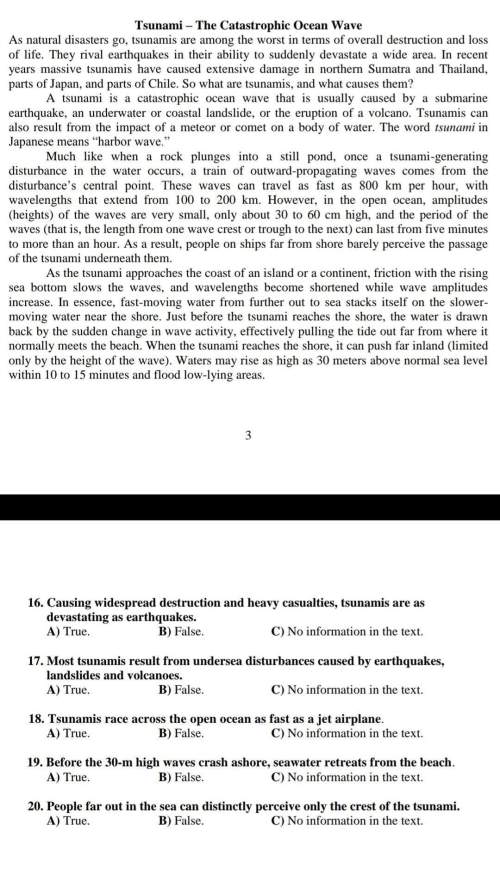
English, 16.10.2020 04:01 puremousetail
Diversity and Privilege
Watch the PBS Documentary, “A Class Divided” (Links to an external site.). Answer the following questions in a narrative format. Each question should have a minimum of a six sentence paragraph answer. Note: Please do not number or type out the question in your response. You should use transition words or phrases to move to the next point.
1. What scene had the strongest impact on you? Why did that stick with you?
2. What did you learn about discrimination and segregation?
3. How was the exercise that Elliott designed a response to the children's question, "Why would anyone want to murder Martin Luther King?" Did the film provide an answer to the question? How would you answer the question?
4. How did the negative and positive labels placed on a group become self-fulfilling prophecies?
5. In the prison seminar, one of the white women asserts that all people face some kind of discrimination. Another woman challenges her, claiming that whites can't really know what it's like to face discrimination every minute of every day. What do you think?
6. How did Elliott's discrimination create no-win situations for those placed in the inferior group? How did she selectively interpret behavior to confirm the stereotypes she had assigned?
7. It's easy to understand why third-graders might not refuse to obey their teacher, but when the exercise is done with the prison guards, why don't any of the adults object?
8. Consider the kinds of privileges that Jane Elliott created for her third-graders, such as extra recess time, getting to go back for seconds at lunch, and being first in line. (While these were appropriate rewards for her 8-year-olds, look at what kinds of privileges exist in the adult world by reading the classic article "Unpacking the Invisible Knapsack," by Peggy McIntosh. Unpacking the Invisible Knapsack. pdf)
9. Use the checklist as self-reflection, asking "Can you count on this?" A "yes" answer scores 1 point. For a "no," subtract 1 point. Score nothing for "does not apply to me." The higher the score, the greater the degree of privilege one has in the context of living in the United States today. What is your score? Were you surprised by your score, or did it confirm what you already knew?
10. Why is privilege normally invisible and what does it feel like to make it visible?
11. Discuss McIntosh's argument that the word "privilege" is misleading. Do you agree or disagree, and why?

Answers: 3


Another question on English

English, 21.06.2019 15:00
In the context of the passage, what does the word torpid mean? b. predatory a. energetic c. dormant d. aquatic
Answers: 2


English, 22.06.2019 03:30
The wind skittered playfully along the pathway, drawing leaves and bits of flowers along with it. which word gives the passage a cheerful mood?
Answers: 1

English, 22.06.2019 07:00
Which sentence in this excerpt from leo tolstoy’s the death of ivan ilyich shows the human tendency to contemplate one’s past life? "but if that is so," he said to himself, "and i am leaving this life with the consciousness that i have lost all that was given me and it is impossible to rectify it—what then? " he lay on his back and began to pass his life in review in quite a new way. in the morning when he saw first his footman, then his wife, then his daughter, and then the doctor, their every word and movement confirmed to him the awful truth that had been revealed to him during the night. in them he saw himself—all that for which he had lived—and saw clearly that it was not real at all, but a terrible and huge deception which had hidden both life and death. this consciousness intensified his physical suffering tenfold. he groaned and tossed about, and pulled at his clothing which choked and stifled him. and he hated them on that account. he was given a large dose of opium and became unconscious, but at noon his sufferings began again. he drove everybody away and tossed from side to side. his wife came to him and said: "jean, my dear, do this for me. it can't do any harm and often . healthy people often do it." he opened his eyes wide. "what? take communion? why? it's unnecessary! " she began to cry. "yes, do, my dear. i'll send for our priest. he is such a nice man." "all right. very well," he muttered. when the priest came and heard his confession, ivan ilyich was softened and seemed to feel a relief from his doubts and consequently from his sufferings, and for a moment there came a ray of hope. he again began to think of the vermiform appendix and the possibility of correcting it. he received the sacrament with tears in his eyes.
Answers: 2
You know the right answer?
Diversity and Privilege
Watch the PBS Documentary, “A Class Divided” (Links to an external site.)....
Questions

Biology, 02.09.2019 08:30

Physics, 02.09.2019 08:30

Social Studies, 02.09.2019 08:30


History, 02.09.2019 08:30


History, 02.09.2019 08:30




History, 02.09.2019 08:30



Social Studies, 02.09.2019 08:30



Mathematics, 02.09.2019 08:30

Geography, 02.09.2019 08:30

Social Studies, 02.09.2019 08:30

Mathematics, 02.09.2019 08:30




